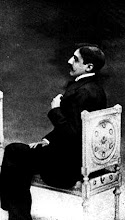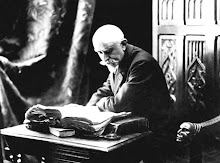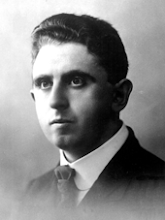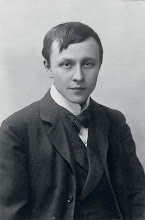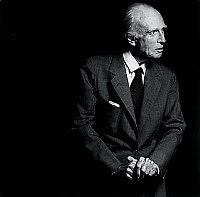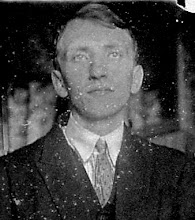 CLOACAL GROANING
CLOACAL GROANING Why is Franzen Important?
Franzen is important because he allows the middle class to believe they still matter, they still exist.
We know that the Western novel (as distinct from long prose narratives in general, and so not including The Tale of Genji or The Golden Ass) develops in parallel with the Western middle class, and that this parallelism is not a coincidence. The middle class strives to vindicate itself socially alongside the aristocracy by demonstrating a moral superiority predicated on the cultivation of an elaborate personality or interior life. The novel is the model of this kind of interior life and the obsessively general, all-surveying point of view it takes on the world and its society. Any people anywhere in the world, irrespective of class, may have elaborate Freudian inner lives; my point is that the middle class have turned the elaborate inner life into a fetish which serves as one of the fundamental componants of class identity. In principle, every middle class person lives a novel. Middle class life is a novel. Not every novel is a middle class life.
Every generation of the middle class has its great national novelist to update the model and to reflect the persistence of the middle class' importance, and Franzen wins this dubious distinction for the current generation.
The middle class has less clout in American society now than ever. Given current conditions, the status of the solid bourgeois citizen of two generations ago has disappeared. The US is now a society with two classes only: the filthy rich and the rest. The middle class are already lumped in with the rest, but they resist acknowledging this. The last thing they want to do is acknowledge that they have anything in common with the "white trash" they have been trained all their lives to detest irrationally. They cling to their middle class distinction by clinging to trappings, or to cheap or often expensive imitations, of all sorts, the way the Russian duchess, disposessed by the revolution, clings to her hyphenated name, her snippets of French, her endlessly refondled memory of dancing with Prince Shklovsky at the ball, while she's waiting in line to cash her disability check. So, the middle class clings to Franzen. If they didn't have him, they'd find someone else, they'd invent him.
The middle class do not cling to fantasy, horror, and science fiction novels. These are never taken seriously. Now, however, this kind of fiction is a redoubt of literary activity in the US, far more so than is the traditional middle class novel. Why?
Horror fiction: because it registers the idea that ordinary life is a dream, and that reality is in fact much worse. The middle class occupies an oasis of comfort in the midst of the desert created by all the trouble it requires to sustain itself, and which is too discomfiting to look at. In many horror stories, the menace is overcome by a turn to spirituality or religion; this has an obvious counterpart in my analogy. However, not all horror fiction includes a comforting restoration; the basic wrongness often remains, the sense that a penance has to be paid, there is nothing that can be done to reinforce the foundations of this precarious way of life. What's more, horror fiction often masks a desire, which is not always ambivalent, to destroy this way of life. Or at least, to see it destroyed.
Fantasy fiction: because it reflects a desire for a connection between individuals in a greater scheme of things, particularly to fictionalized traditions, histories, and societies. Adopting, if only in fancy, a substitute history, which blocks out the reality. Trying to validate middle class values in the same way that aristocratic values are validated. Tolkien is replete with this: the hobbits are English 19th century middle class values incarnate. However, the appeal of fantasy is hard to understand without realizing that middle class life feels hollow, divorced in practice from the values it espouses in theory. This is especially true of its meritocratic rhetoric; in fantasy, individuals really do make a difference. In many cases, the fictional history is appealing not because it blocks the view of an uncomfortable true history, but because that true history is blocked out in any event, and this in turn creates a yearning for a history, even if it makes all history look like fiction. Fantasy also reflects a frequently fanciful nostalgia for a less alienated life, lived closer to the land and the tribe. For values that are not well realized or really meaningful in a middle class capitalist milieu, like compassion, wisdom, kindness, selflessness, courage, blessings and curses, justice.
Science fiction: because it presents alternative futures that emerge from a special kind of anticipation that is also characteristic of the middle class. Technological innovation can produce sudden wealth and renewal of the middle class; the middle class can go on forever, even on Mars. Neither aristocrats nor poor farmers are traditionally supposed to be interested in innovation (whether or not they are is not material here, only that they are not specially associated with innovation the way the middle class is). Science fiction affords the greatest possible scope to the kind of all-seeing, all-surveying, strictly neutral or "tolerant" middle class point of view. However, science fiction also reflects an intense appetite for meaning through discovery and the development of knowledge; it is now the only place where such an appetite can be found. Science fiction has a salubrious optimism that is surprisingly attractive and resistant to criticism. It values intelligence, curiosity, inventiveness, resourcefulness, intrepidity, and above all a willingness, not to discover the truth, which is an impulse shared by many other kinds of fiction and therefore not specifically a hallmark of science fiction, but rather to embrace and adapt to the truth, which is a hallmark of science fiction.
These three genres continue to develop because they have something to say. The middle class realist novel has less and less to offer, and will likely continue its devolution until it becomes an empty amulet.
 News from under the isolator ...
News from under the isolator ...












